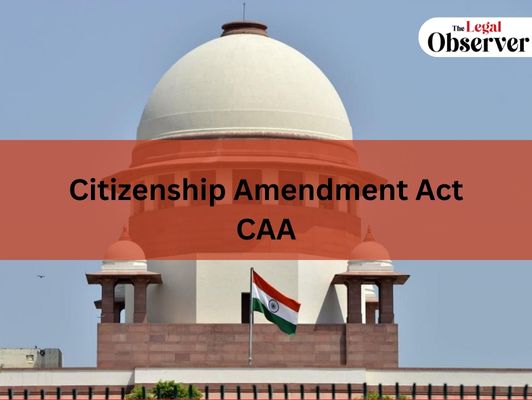Central Government submitted to the Supreme Court in the Citizenship Amendment Act case that the Act, which was implemented in 2019, does not impact the legal, democratic, or secular rights of any Indian citizen and is a benign piece of law.”The CAA has had no impact on the current procedure for foreign nationals of any nation gaining Indian citizenship. Legal immigration is still permitted from any country on the globe, including the three nations listed in the CAA, as long as they have valid identification and a valid visa”
The government made this claim in its most recent 150-page affidavit submitted to the Supreme Court. The Act expedites the naturalisation process for citizenship for “illegal migrants” from six other religious groups besides Muslims who have fled persecution in Pakistan, Bangladesh, and Afghanistan. On October 31, the Supreme Court set a hearing date for 220 petitions that contested the CAA of 2019.
The MHA stated in a 150-page affidavit that the CAA is a “targeted statute” that exclusively offers citizenship to members of six specific communities who arrived on or before December 31, 2014 and it is not related to any Indian’s legal, political, or secular rights.
The MHA stated in the petition hearing on the controversial CAA, which had protests in various parts of the country in 2019 and 2020 over alleged discriminatory provisions, that the current regime for foreigners obtaining citizenship of any country continue to be unaffected by the law.
The CAA, according to the government, is a “narrowly crafted legislation” that aims to solve the issue that has been on India’s radar for many years.
According to the Home Ministry, “The CAA does not intend to acknowledge or strive to provide answers to all or any type of purported persecution that may be taking place throughout the world or that may have occurred before anywhere in the world.”
According to the affidavit, the CAA has no effect whatsoever on any Indian citizen’s legal, democratic, or secular rights. “The Parliament/Legislature has greater latitude in subjects relating to foreign policy, citizenship, economic policy, etc.” the affidavit stated.
According to the petitioners who challenged the law, Muslims are subjected to discrimination based on their faith under the CAA. Such religious segregation violates Article 14 of the Indian Constitution’s right to quality since it lacks any justifiable discrimination.
As a result of the strong opposition to the legislation, the Supreme Court issued notice in a batch of more than 140 petitions in January 2020, but it did not halt the Act. Afterward, the Court made a suggestion that a Constitution Bench may hear the case, but no order was made.
The Union Home Ministry’s affidavit says that the CAA is a specifically crafted piece of law that aims to deal with a problem that has been bothering India for many years and needs a remedy.






